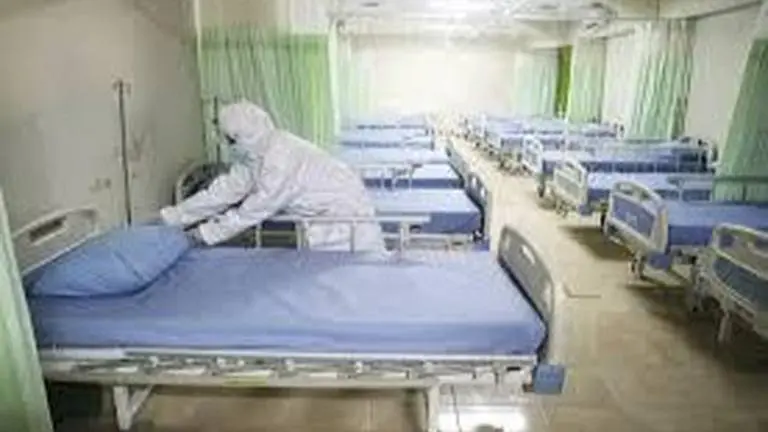Updated 9 September 2020 at 14:15 IST
Poor health rules, low virus testing in Indonesia
As the official coronavirus case count in Indonesia surpasses 200,000 and businesses continue to reopen, health care workers have issued a desperate plea.
- World News
- 4 min read

As the official coronavirus case count in Indonesia surpasses 200,000 and businesses continue to reopen, health care workers have issued a desperate plea.
More than 100 of the country's health care workers have died from the virus with health experts saying poor protocols in hospitals, a lack of regular testing of health care workers, and slow test result times have contributed to the deaths.
Indonesia has one of the lowest numbers of doctors per population in Southeast Asia, leading experts to fear the long term impacts of the workers' deaths on Indonesia's health care system.
The country is also home to the highest number of health care workers to die from COVID-19 in Southeast Asia.
Advertisement
The tribulations endured by Indonesian health care workers are similar to others globally: long working hours, hospital beds close to capacity and a lack of resources like protective equipment.
The Indonesian government has been able to provide protective equipment to health care workers after an initial shortage that saw doctors wearing plastic raincoats while working.
Advertisement
But other issues remain — with deadly consequences.
One doctor said that virus and non-virus patients are often treated in the same health care facilities, increasing workers' potential exposure to the virus.
Only workers who are treating known coronavirus patients are provided COVID-19 testing for themselves, noting that results are often delayed.
According to the World Health Organization, a total of 66,420 cases were recorded in Indonesia in August alone, representing a 28% rise from July's total.
While a majority of the cases were in East Java province and the capital Jakarta, several other places have emerged as hot spots.
The true case number is suspected to be higher, as Indonesia has one of the lowest testing rates.
Isolation beds are now at 70% capacity in the country, "raising concern about the health care system's capacity to cope with the increasing number of new cases every week," the WHO said.
Health care workers are offered no psychological counselling, said Dr. Irman Pahlepi, 29, who has worked in a COVID-19 intake center since March.
The fear of exposure to the virus has also kept many health care workers away from their families, as they choose to instead stay in government-provided hotels.
"The situation is getting scarier now. More patients are coming to the ER. The condition of the ER is getting crowded by both probable or the confirmed cases," said Pahlepi.
"Many patients are not believe the virus exists," Pahlepi added.
Pahlepi underlined that lack of awareness makes the situation worse, and some hospitals are so crowded that doctors have to improvise by treating patients in the hallways.
"We are almost desperate (seeing this situation) but we have to keep working because if not us, who else will serve, educate the patient's family and people out there about the dangers of this COVID?" said Pahlepi.
On September 2, the government announced a plan to lessen the burden on medical workers by moving patients from hospitals to create more space, adjusting clinical work arrangements to reduce exposure to patients and providing nutritional supplements to doctors.
The impact of the deaths and the treatment of doctors will impact Indonesia's health care workforce for years to come, said Nurul Nadia, a public health expert from the Center for Indonesia's Strategic Development Initiatives, an organization that focuses on health.
The secretary of the Legal Aid Agency of the Indonesian Nurses Association said that as of May 25, "330 nurses in government-owned or private-owned hospitals experienced pay cuts and did not receive any holiday bonus," according to a report by Amnesty International.
Mira Tania, a private office worker who returned to the office with strictly enforced health protocols said that public awareness in Indonesia is still low.
"I think the government is good enough in preventing its spread, such as extended social restrictions and making other rules, but it all comes back to each person, to our own awareness so that we can reduce the spread of the virus," Tania said.
Published By : Associated Press Television News
Published On: 9 September 2020 at 14:15 IST
